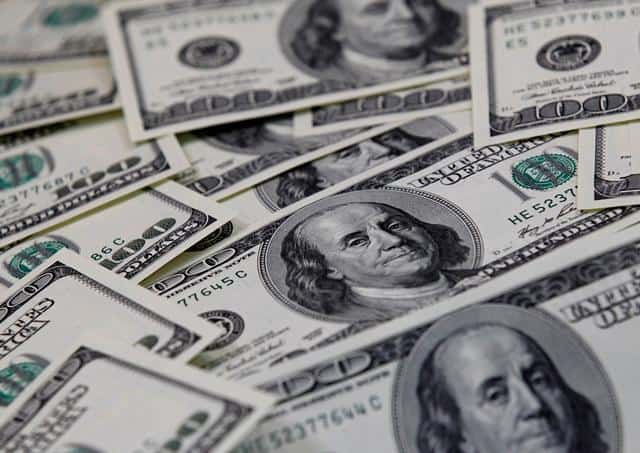The dollar was nursing losses on Monday and kept near multi-week lows after Federal Reserve Chair Jerome Powell laid out a slower-than-expected path to rate hikes, while a storm lashing oilfields in the Gulf of Mexico lifted oil-exposed currencies.
The greenback had dropped broadly on Friday, falling to a two-week low on the euro, after Powell managed to flag an exit from emergency monetary policy settings that did not spook markets or suggest a rush to raise interest rates.
“It could be appropriate to start reducing the pace of asset purchases this year,” Powell said in a speech, with employment the determining factor. But that wouldn’t directly signal higher rates, he said, as hiking would need the economy to pass “a different and substantially more stringent test”.
Traders latched on to the wiggle-room in the rates outlook and sold dollars, while Treasury yields fell, with the dollar index ending Friday with a 0.4% loss and picking up on Monday more or less where it left off, at 92.670.
The euro rose 0.4% to just above $1.1800 and it held there on Monday, while the yen crept through its 20-day moving average and steadied at 109.78 per dollar.
“Powell was vague on the timing of tapering, and his reiteration that it is separate from a decision to raise rates was read to imply that there’d be a gap,” ANZ analysts said in a note.
“That has, in turn, seen the market take a Goldilocks view of the Fed — stimulus will be reduced, but not so quickly as to snuff out the recovery.”
The Australian and New Zealand dollars also hung on to sizeable Friday gains, with the kiwi punching through its 50-day moving average and both logging weekly rises of more than 2%, their largest on the dollar in about 10 months.
The Aussie last bought $0.7313 and the kiwi $0.7007, although both remain a fair way below chart resistance levels around $0.7426 and $0.7100 respectively.
Sterling rose 0.4% on Friday and held at $1.3764 on Monday.
Elsewhere the oil-exposed Norwegian crown tracked oil prices higher to reach a seven-week high of 8.6971 per dollar as Hurricane Ida shut production wells as it pounded Louisiana. The Canadian dollar held Friday gains.
Focus now turns to U.S. labor data due out on Friday for the next clue on the timing of asset purchase tapering and to efforts to contain the spread of Covid-19 in New Zealand where an outbreak delayed an expected interest rate hike.
New Zealand reported 83 new local cases on Sunday and flagged possible tightening of restrictions, though expectations of an October hike firmed to about 80% .
“Together with Covid trends, Friday’s U.S. non‑farm payrolls will make or break the case for announcing tapering at the (Fed’s) September meeting,” said Commonwealth Bank of Australia analyst Kim Mundy.
“We consider another 800,000 jobs should be enough to announce tapering. We expect the dollar to regain some lost ground this week while market participants are still worried Covid will slow the world economy.”

